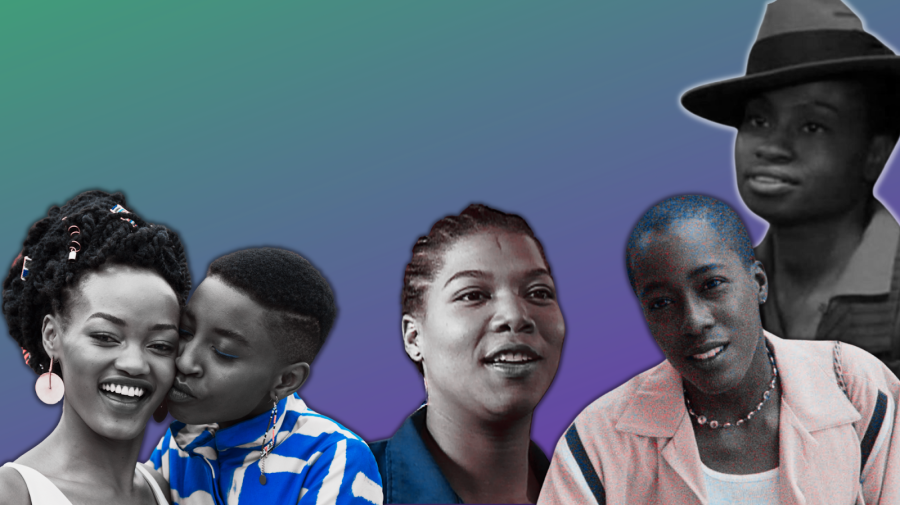
Lackawanna Blues (2005), a film based on the life story of Ruben Santiago Jr., is a moving depiction of an unlikely family. The supporting cast elevates the story even further, especially Ricky (Adina Porter), one of cinema’s most vital Black queer film characters.
As a Black queer person who’s still creating themselves, my interest was piqued by Ricky, a masculine-of-center woman, when I first watched the film. And while Ricky’s phenomenal, she’s also just one of the many magnificent Black queer characters in film that deserves their flowers. With this in mind, let’s take a look at 10 incredible Black queer characters — starting with the incomparable Ricky from Lackawanna Blues.
Ricky in Lackawanna Blues (2005)
Ricky is one of the smoothest people in the history of film. She’s a supporting character but from her first appearance in Lackawanna Blues, she commands attention. Her swagger is enviable. She’s bold, suave and debonair. It doesn’t matter that people are giving her a hard time. It doesn’t matter that the world makes it clear that her mere existence is unwelcome.
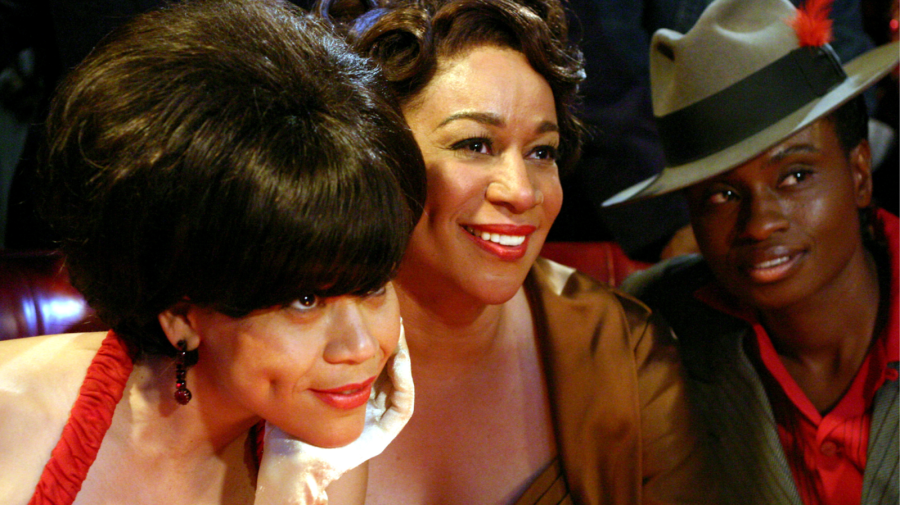
Not only was Ricky here — here over a decade ago, no less — but she was unashamed. While Lackawanna Blues primarily tells the story of a woman who runs a boarding house and the young boy she takes under her wing, the many memorable tenants make the film uniquely marvelous. Ricky is one of those tenants — not just an inspiring Black queer character in her own right, but part of the movie’s chosen family of sorts.
Alike in Pariah (2011)
Alike (Adepero Oduye) is trying to find her way in a world that’s hostile to her very existence. On top of figuring out how to date, she’s juggling her friendships and dreams, all while trying to make space for a mother who doesn’t know how to love her. And, of course, Alike’s still discovering her sexuality, something she does in secret for the most part.
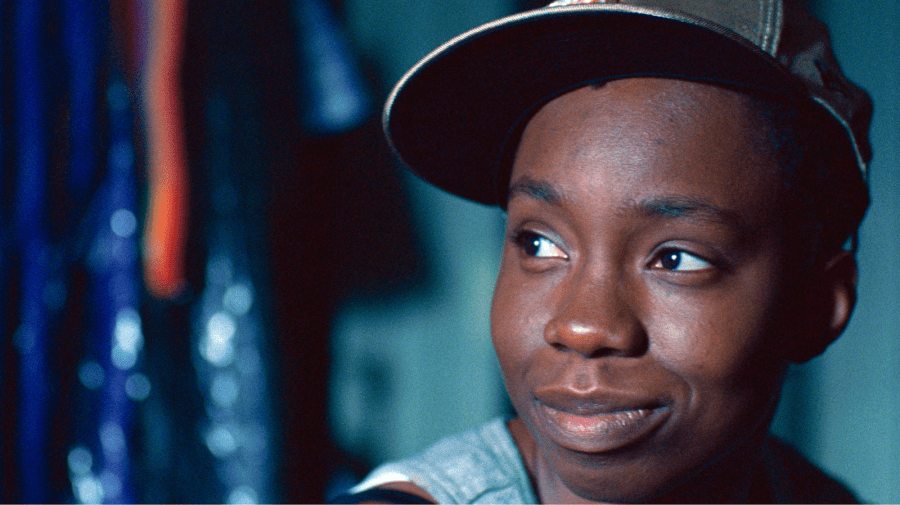
But Alike’s journey in Pariah, one of our favorite queer stories ever captured on film, leaves an impression in large part due to the courage and conviction Alike embodies. For some folks, taking on those traits is a fact of everyday life, and this incredible character illuminates the importance of forging your own path.
Celie in The Color Purple (1985)
Although The Color Purple downplayed the relationship between Celie (Whoopi Goldberg) and Shug (Margaret Avery), their love story is revolutionary. Both on screen and in the pages of Alice Walker’s novel of the same name, Celie blooms in love, despite a past marked by abuse. In fact, her love for Shug is a bright spot in this otherwise gut-wrenching story.
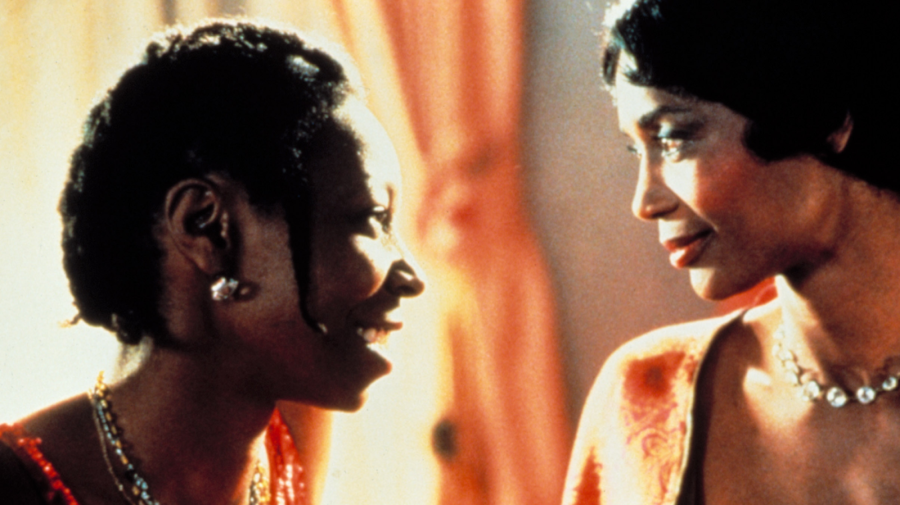
Although other characters repeatedly harp on Celie, telling her she’s not desirable, she doesn’t crumble. Instead, she learns to stand up for herself, runs a business and thrives outside of her abusive upbringing and marriage. But she also doesn’t have to change to do so. While The Color Purple is certainly a heartbreaking film, the depiction of Celie finding herself and surviving is incredibly affirming, and that can’t be overlooked.
Cleo in Set It Off (1996)
Set It Off is mired in tragedy, but the main characters’ friendship carries the audience through it all. Each of the women is incredible, but Cleo (Queen Latifah) commands our attention as an unapologetically masculine queer woman.
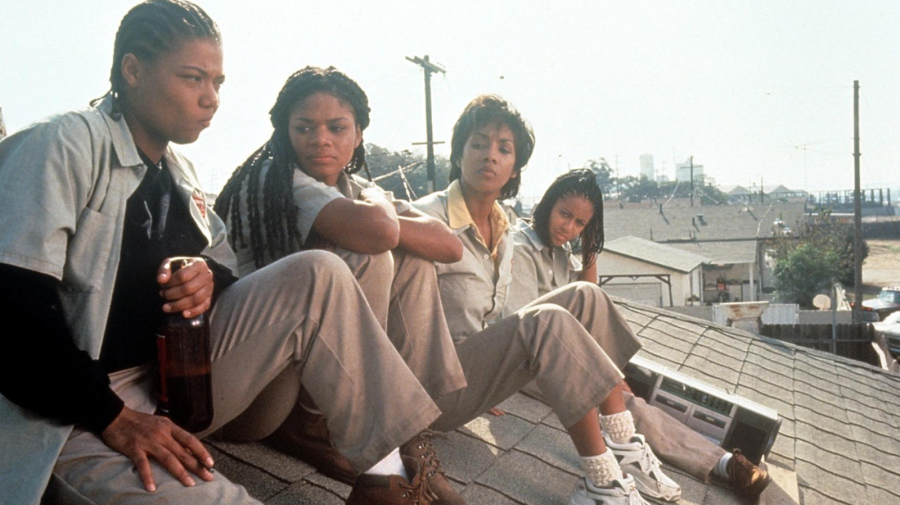
From her straight-back cornrows and white undershirt, to how she spoke and carried herself, Cleo oozed confidence and rugged masculinity. She embraces her girlfriend openly; her identity isn’t a source of conflict in the movie. Instead, it just is. And while she’s tough and cool, Cleo also has so much heart.
Without a doubt, Cleo’s role in such a mainstream film helped showcase that womanhood is expansive, and that queerness isn’t something to hide.
Joanne in Rent (2005)
A central character in the musical Rent, Joanne Jefferson has been portrayed by numerous actors on the stage, but Tracie Thom’s portrayal of the type-A character in the film adaptation is truly something to remember. Joanne navigates the corporate world, a band of free-spirited artists and her relationship with Maureen (Idina Menzel), a woman who’s difficult to pin down and understand. (To say the least.)
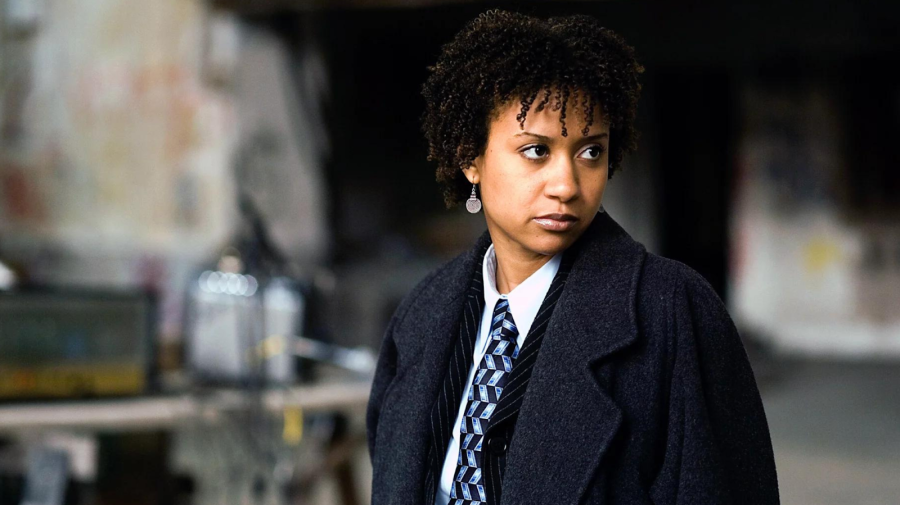
And although Joanne doesn’t necessarily do all of this gracefully, she reminds us that life is complicated — and that’s okay. At the same time, her character shows us that staying open to new possibilities often leads to a wealth of new experiences.
Ma Rainey in Ma Rainey’s Black Bottom (2020)
In Ma Rainey’s Black Bottom, one of 2020’s best films, a recording session brings out conflict among bandmates. But at the heart of the band is the brilliant Ma Rainey (Viola Davis).
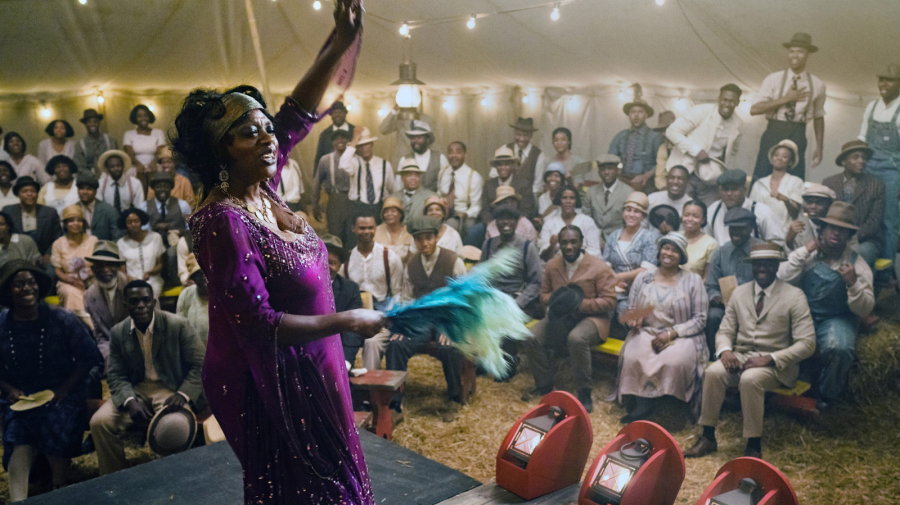
Ma is fully aware of what her talent is worth — and we don’t always get to see that kind of knowing confidence on screen. Not to mention, her business savvy and signature style are unforgettable. Ma Rainey embodies luxury and pleasure in a way that’s incredibly affirming, and illustrative of the fact that deep, profound joy is possible even during difficult times.
Bessie Smith in Bessie (2015)
Ma Rainey’s protégé, Bessie Smith is a Black queer icon. In Dee Rees’ (Mudbound, Pariah) film, Queen Latifah portrays the blues legend with a breathtakingly beautiful and intimate approach. And that’s something we don’t often get to see when it comes to figures who’re so famous, so known.
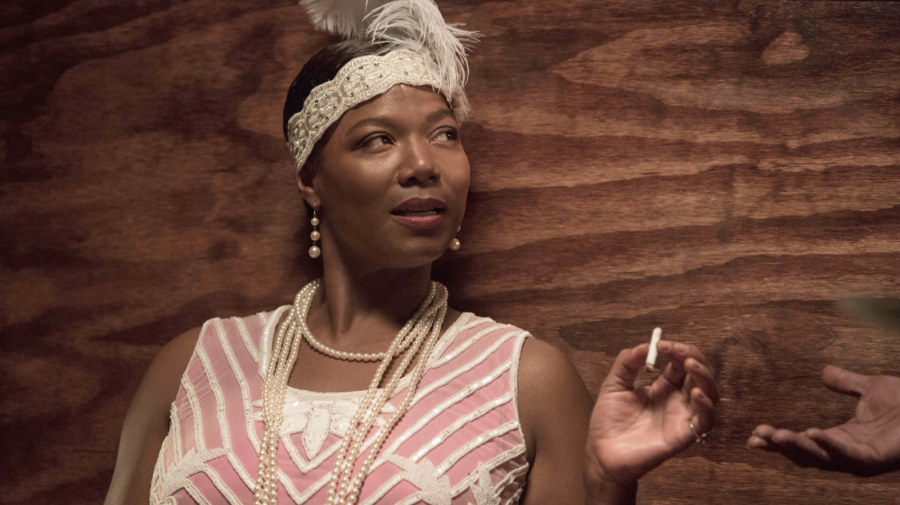
But, here, the musician is more than just “The Empress of the Blues”. Bessie’s passion for life and her greatness — even in the face of shortcomings — challenges us to invite nuance into our understanding of others and ourselves.
Cheryl in The Watermelon Woman (1996)
This widely celebrated film follows Cheryl, played by filmmaker Cheryl Dunye, as she attempts to make a film about a Black actress credited as “The Watermelon Woman”. While on this artistic journey, Cheryl falls for a customer (Guinevere Turner) at her day job. From there, the film touches on the intricacies of interracial relationships, Black art, white progressives and more.
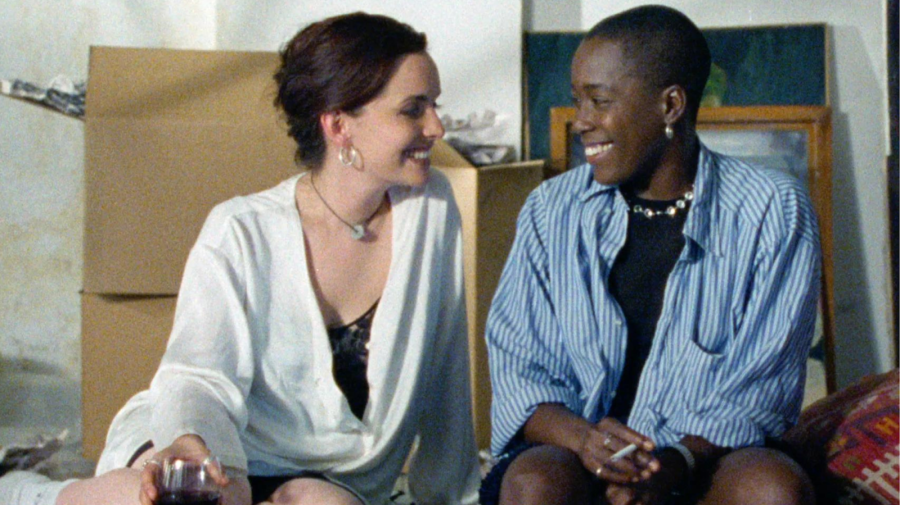
Still, Cheryl — as a character — remains especially intriguing. She isn’t concerned about fitting into a masculine or feminine ideal. The filmmaker is goofy, curious and hopeful. Watching Cheryl awkwardly stumble toward a deeper understanding of herself — and her subject, The Watermelon Woman — can be both painful and humorous, but, no matter the case, she’s always endearing, entertaining and relatable. And that makes her one of cinema’s great Black queer film characters.
Chiron in Moonlight (2016)
The Oscar-winning Moonlight, written and directed by Barry Jenkins, centers on Chiron, a Black gay man from south Florida. Adapted from Tarell Alvin McCraney’s unpublished and semi-autobiographical play, In Moonlight Black Boys Look Blue, the film is a coming-of-age story in three acts.
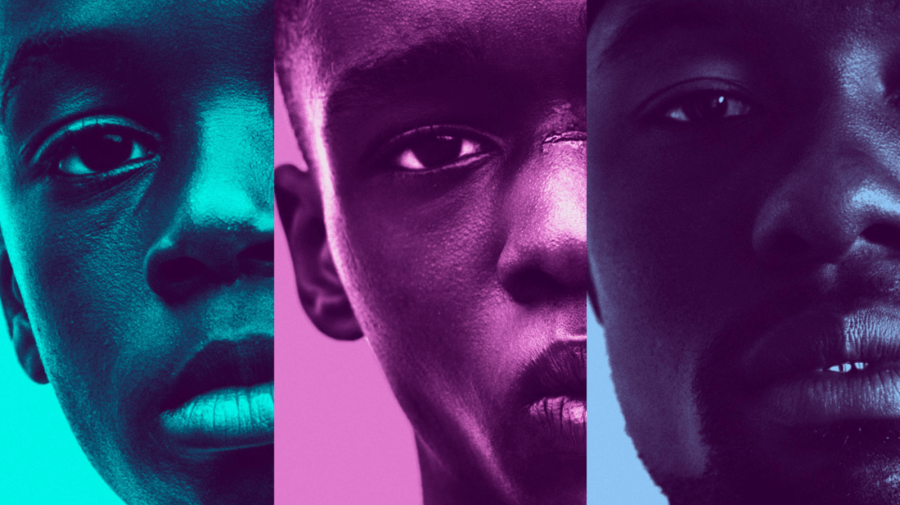
There’s child (Alex Hibbert), teen (Ashton Sanders) and adult Chiron (Trevante Rhodes); no matter the moment in his life, our protagonist is searching for belonging. But what’s perhaps most striking about Chiron is how he remains a sensitive — albeit guarded — person despite his transformation.
Kena in Rafiki (2018)
Kena (Samantha Mugatsia) and Ziki’s (Sheila Munyiva) budding romance is at the center of Wanuri Kahiu’s Kenyan drama Rafiki. In particular, there’s just something so striking and heartwarming — all at once — about Kena’s innocence and tenderness. As you might expect, Mugatsia’s performance is one of the must-see film’s major draws.
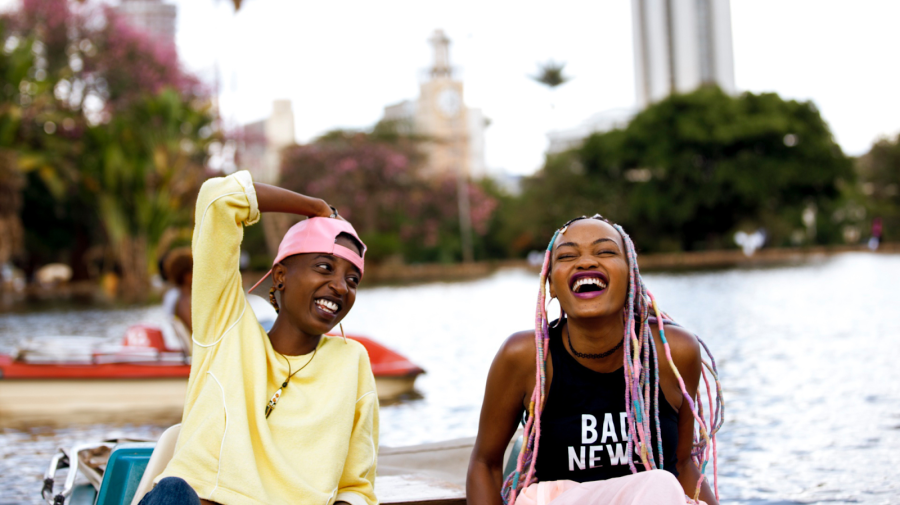
When Kena and Ziki grow closer, Kena’s status as “just one of the boys” comes under some scrutiny, opening up a conversation about how men accept her in male-dominated spaces in incredibly conditional ways. Kena’s navigation of public spaces, romantic and platonic relationships and her own identity all help to create a character whose journey stays with us long after the credits roll.
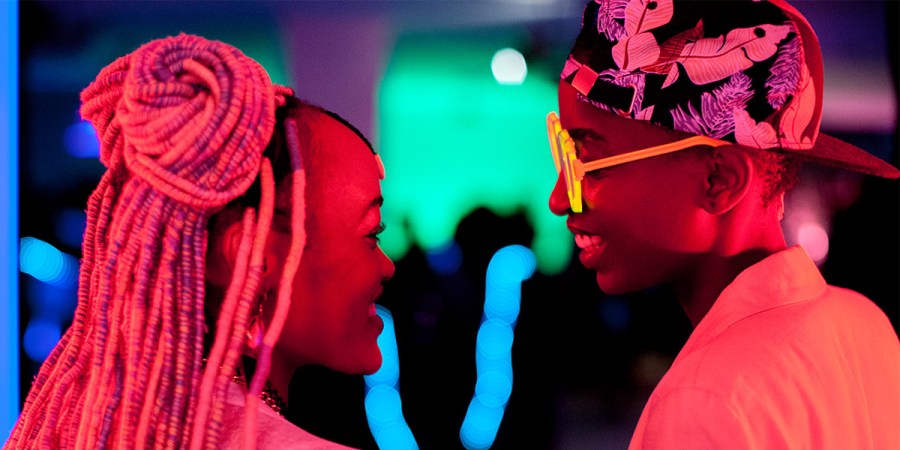
Rafiki is a great film to end on. Described as “an Afro bubble gum film” about “falling in love where it’s illegal” for queer people to do so openly, Rafiki is also full of a joy so particular to queer love — and discovering one’s self. That said, seeing Black queer people in films like Rafiki is crucial: these stories are a balm for people aching to see their realities reflected back to them on screen.
Moreover, these characters, from Ricky to Kena, offer up an additional salve for those of us who’re continuously creating and discovering ourselves outside of the boundaries others might’ve established for us as young people. And, in many ways, the very existence of these Black queer film characters lays the groundwork for the future of Black artists and stories.






